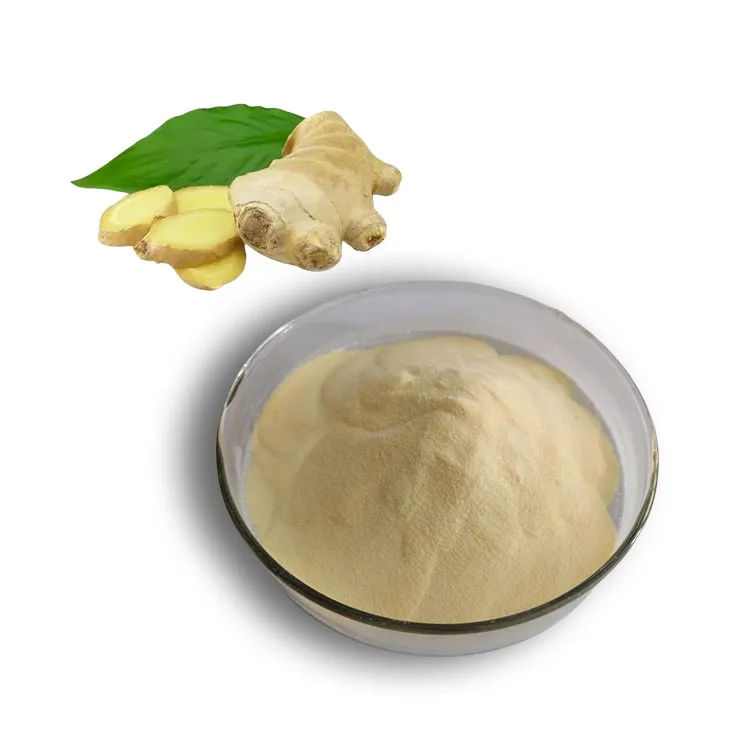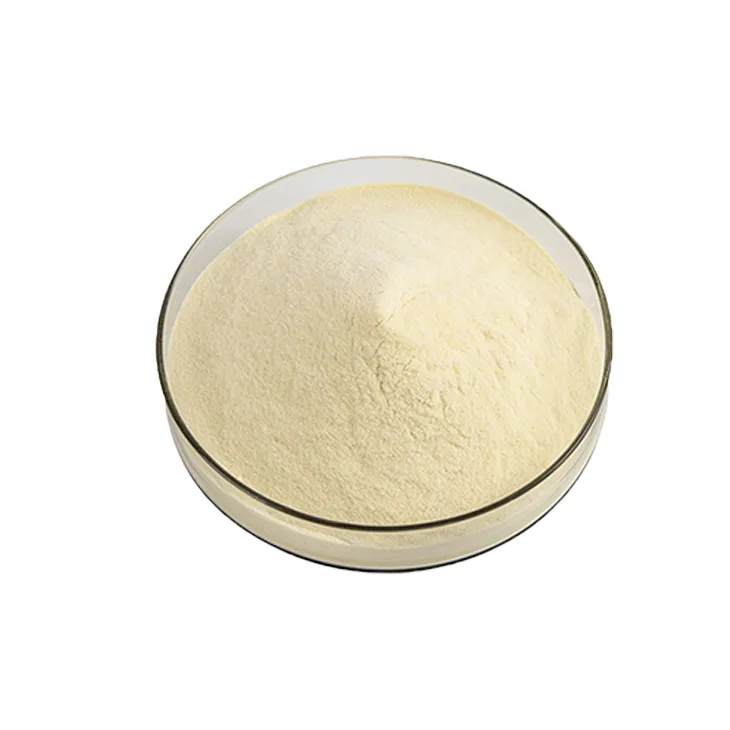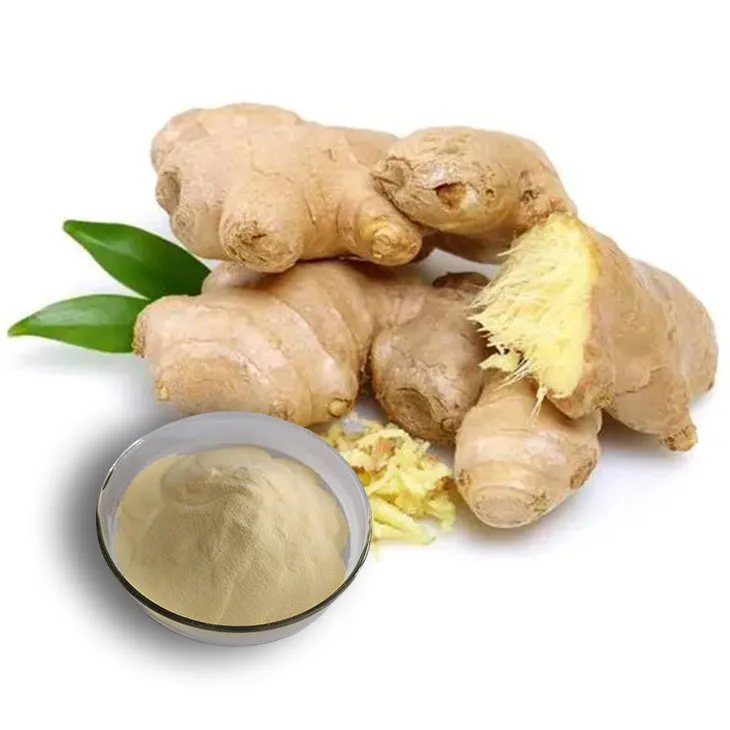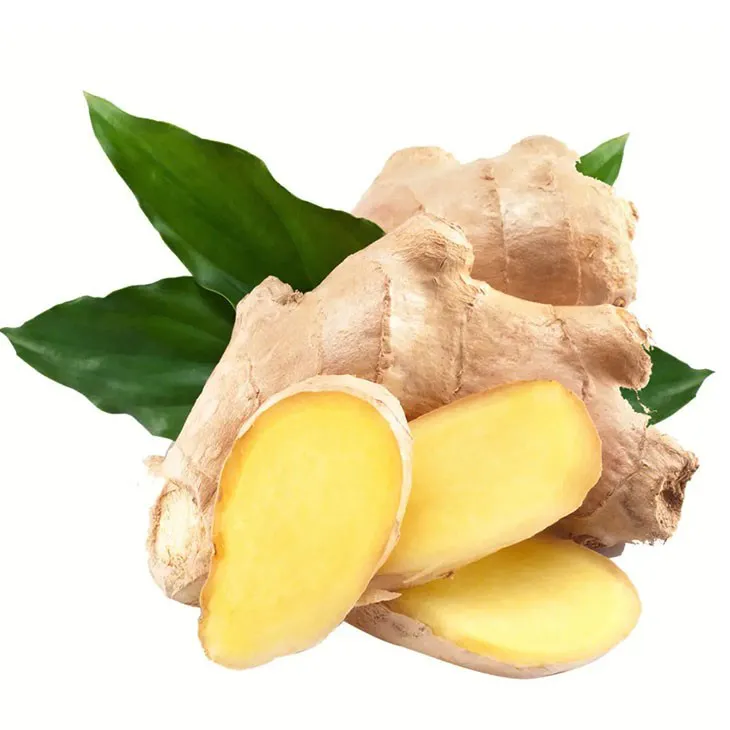- 0086-571-85302990
- sales@greenskybio.com
Ginger Extract: Benefits and Consumption Guide
2024-11-12

Introduction
Ginger has been a staple in traditional medicine for centuries, and Ginger Extract is becoming increasingly popular in modern health and wellness circles. Derived from the ginger root (Zingiber officinale), Ginger Extract contains a rich array of bioactive compounds that offer a multitude of health benefits. In this article, we will explore these benefits in detail and provide a comprehensive guide on how to consume Ginger Extract safely and effectively.

Bioactive Compounds in Ginger Extract
Ginger extract is packed with important bioactive compounds, chief among them being gingerols and shogaols.
Gingerols
Gingerols are the primary active components in fresh ginger. They are responsible for much of ginger's characteristic flavor and many of its health - promoting properties. These compounds possess strong anti - inflammatory and antioxidant capabilities. The anti - inflammatory action of gingerols helps to reduce swelling and pain in the body, while their antioxidant properties protect cells from damage caused by free radicals.
Shogaols
Shogaols are formed when ginger is dried or cooked. They are more pungent than gingerols and also have significant anti - inflammatory, antioxidant, and antimicrobial properties. Shogaols have been studied for their potential in inhibiting the growth of certain cancer cells, although more research is needed in this area.

Health Benefits of Ginger Extract
Anti - Inflammatory Effects
Chronic inflammation is linked to a wide range of health problems, including heart disease, arthritis, and certain cancers. The anti - inflammatory properties of ginger extract can help to reduce the levels of inflammatory markers in the body. For example, studies have shown that ginger extract can be effective in reducing joint pain and swelling in people with osteoarthritis. It does this by inhibiting the production of inflammatory cytokines and enzymes in the body.
Antioxidant Protection
Free radicals are unstable molecules that can damage cells and DNA, leading to premature aging and various diseases. The antioxidants in ginger extract, such as gingerols and shogaols, scavenge these free radicals, protecting the body's cells from oxidative stress. This antioxidant protection may contribute to a reduced risk of chronic diseases like heart disease, diabetes, and neurodegenerative disorders.
Digestive Health
Ginger extract has long been used to aid digestion. It can stimulate the production of digestive enzymes, which helps to break down food more efficiently. This can be particularly beneficial for people with indigestion, bloating, or other digestive issues. Additionally, ginger extract has been shown to have a soothing effect on the gastrointestinal tract, reducing nausea and vomiting. It is often recommended for pregnant women experiencing morning sickness and for patients undergoing chemotherapy or other medical treatments that can cause nausea.
Relief from Nausea
One of the most well - known benefits of ginger extract is its ability to relieve nausea. Whether it's motion sickness, morning sickness during pregnancy, or nausea caused by medications or medical procedures, ginger can be a natural and effective remedy. Studies have found that ginger extract can act on the receptors in the brain and digestive system that are involved in the nausea response, reducing the feeling of queasiness.
Muscle Pain Reduction
After intense exercise or physical activity, muscle soreness can be a common problem. Ginger extract may help to reduce muscle pain and speed up the recovery process. Its anti - inflammatory properties can reduce the inflammation in the muscles that occurs after exercise, while its antioxidant properties can help to repair damaged muscle cells.
Heart Health
Ginger extract may also play a role in improving heart health. It can help to lower blood pressure and cholesterol levels, two major risk factors for heart disease. By reducing inflammation in the blood vessels and improving blood flow, ginger extract may contribute to a healthier cardiovascular system.

Consumption Guide for Ginger Extract
Different Forms of Ginger Extract
There are several forms of ginger extract available on the market:
- Liquid Extract: This is a concentrated form of ginger extract usually dissolved in alcohol or glycerin. It can be added to water, tea, or other beverages. Liquid extracts are often more potent and have a faster absorption rate.
- Capsules: Ginger extract capsules are a convenient option for those who don't like the taste of ginger. They are pre - measured, making it easy to control the dosage. Capsules are typically made from dried ginger extract powder.
- Tablets: Similar to capsules, ginger extract tablets are another easy - to - consume form. They may also contain other ingredients such as binders and fillers.
- Fresh Ginger Juice: While not a pure extract, fresh ginger juice contains a high concentration of ginger's active compounds. It can be made at home by grating fresh ginger root and squeezing out the juice. However, it has a strong taste and may not be suitable for everyone.
Appropriate Dosage
The appropriate dosage of ginger extract can vary depending on several factors, such as age, health condition, and the form of the extract. As a general guideline:
- For liquid extracts, a typical starting dose is 1 - 2 milliliters (ml), three times a day. However, it's important to follow the manufacturer's instructions.
- Capsules and tablets usually come in standardized doses. A common dose for ginger extract capsules is 500 - 1000 milligrams (mg) per day, divided into two or three doses.
- When using fresh ginger juice, 1 - 2 teaspoons per day is a reasonable amount. But again, this can be adjusted based on individual tolerance.
When to Take Ginger Extract
- If you are taking ginger extract for digestive issues, it is best to take it before meals. This allows the extract to start working on the digestive system as soon as food enters the stomach.
- For nausea relief, ginger extract can be taken as soon as the feeling of nausea starts. It can be taken on an empty stomach, but some people may find it easier on the stomach if taken with a small amount of food.
- When using ginger extract for its anti - inflammatory or antioxidant benefits, it can be taken at any time of the day. However, consistent daily intake is often recommended for the best results.

Potential Side Effects of Ginger Extract
While ginger extract is generally safe for most people, there are some potential side effects to be aware of:
- Digestive Upset: In some cases, ginger extract can cause mild digestive problems such as heartburn, diarrhea, or abdominal discomfort. This is more likely to occur with high doses or in people with sensitive stomachs.
- Blood - Clotting Effects: Ginger has blood - thinning properties, which can be beneficial for some people, but may pose a risk for those taking blood - thinning medications. If you are on such medications, it is important to consult your doctor before taking ginger extract.
- Allergic Reactions: Although rare, some people may be allergic to ginger. Symptoms of an allergic reaction can include rash, itching, swelling, or difficulty breathing. If you experience any of these symptoms after taking ginger extract, stop use immediately and seek medical attention.
Conclusion
Ginger extract offers a wide range of health benefits, from reducing inflammation and protecting against oxidative stress to improving digestion and relieving nausea. With its various forms and relatively easy consumption, it can be a valuable addition to a healthy lifestyle. However, it is important to be aware of the appropriate dosage and potential side effects. As with any supplement, it is always a good idea to consult a healthcare professional before starting to take ginger extract, especially if you have underlying health conditions or are taking other medications.
FAQ:
What are the main bioactive compounds in ginger extract?
The main bioactive compounds in ginger extract are gingerols and shogaols. These compounds are responsible for many of the health - promoting properties of ginger extract, such as its anti - inflammatory, antioxidant, and digestive - enhancing effects.
How does ginger extract relieve nausea?
The exact mechanism by which ginger extract relieves nausea is not fully understood. However, it is believed that its bioactive compounds may interact with the digestive and nervous systems. Ginger may help regulate the movement of the digestive tract and influence neurotransmitters in the brain that are related to nausea.
What are the different forms of ginger extract available in the market?
There are several forms of ginger extract available in the market. These include ginger extract in liquid form, which can be taken as drops or added to beverages. There are also capsules or tablets that contain concentrated ginger extract. Another form is powdered ginger extract, which can be used in cooking or added to smoothies and other foods.
What is the appropriate dosage of ginger extract?
The appropriate dosage of ginger extract can vary depending on various factors such as age, health condition, and the intended use. In general, for mild health benefits, a daily dose of about 1 - 2 grams of ginger extract (equivalent to about 1000 - 2000 mg) may be sufficient. However, for specific conditions like relieving severe nausea or reducing muscle pain, higher doses may be required under the guidance of a healthcare provider.
Are there any side effects of taking ginger extract?
While ginger extract is generally safe for most people, some may experience side effects. These can include mild digestive issues such as heartburn, diarrhea, or stomach upset. In some cases, individuals may also have an allergic reaction to ginger. People taking blood - thinning medications should be cautious when using ginger extract, as it may interact with these drugs and increase the risk of bleeding.
Related literature
- The Health Benefits of Ginger: A Review of the Current Evidence"
- "Ginger Extract: Chemical Composition and Biological Activities"
- "Ginger in the Prevention and Treatment of Nausea and Vomiting: A Systematic Review"
- ▶ Hesperidin
- ▶ citrus bioflavonoids
- ▶ plant extract
- ▶ lycopene
- ▶ Diosmin
- ▶ Grape seed extract
- ▶ Sea buckthorn Juice Powder
- ▶ Beetroot powder
- ▶ Hops Extract
- ▶ Artichoke Extract
- ▶ Reishi mushroom extract
- ▶ Astaxanthin
- ▶ Green Tea Extract
- ▶ Curcumin Extract
- ▶ Horse Chestnut Extract
- ▶ Other Problems
- ▶ Boswellia Serrata Extract
- ▶ Resveratrol Extract
- ▶ Marigold Extract
- ▶ Grape Leaf Extract
- ▶ blog3
- ▶ blog4
- ▶ blog5
-
Organic Tongkat Ali extract powder factory.
2024-11-12
-
How to make powder with ashwagandha extract.
2024-11-12
-
Rosehip extract manufacturers from China.
2024-11-12
-
The best cat's claw extract in nature.
2024-11-12
-
Chinese Dandelion Leaf Extract Suppliers.
2024-11-12
-
Golden Seal Extract
2024-11-12
-
Moringa powder
2024-11-12
-
Jujube Extract
2024-11-12
-
Polygonum multiflorum extract
2024-11-12
-
Selenium yeast
2024-11-12
-
Beta Carotene
2024-11-12
-
Agaricus Blazei Extract
2024-11-12
-
Grape Leaf Extract
2024-11-12
-
Troxerutin
2024-11-12
-
Apricot Powder
2024-11-12





















